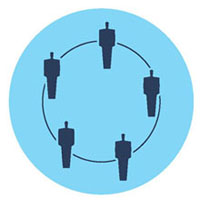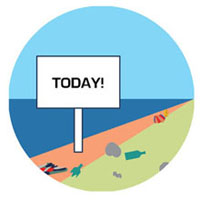Join or create a community

Marine LitterWatch (MLW) has been developed to target communities interested in marine litter activities. Communities are organised volunteer groups of citizens, such as NGOs, civil society associations and other kinds of informal groups. Although citizens can also join MLW independently, the full potential of citizen engagement can be best harnessed by more and more citizens joining existing communities, or creating a new community.
Find out if your community is already part of the MLW users’ network by checking the community list. If it is not and you would like it to be, just send us an email and help us improve our knowledge about marine litter in Europe.

How can communities help?

Communities can organise two different types of events through the MLW app: monitoring events or clean-up events.
In order to use the data to support official monitoring purposes, monitoring events have to follow the Marine Strategy Framework Directive (MSFD) monitoring protocol for beach litter. Monitoring events need to happen on a regular basis and take place at the same location on the beach. As such, they require a community structure and set-up that will ensure proper quality assurance of the data.
Clean-up events may be ad hoc or periodic. They are easy to organise and aim to raise awareness about marine litter. The data generated through clean-ups will also support assessments on the state of European coasts and seas, including those prepared by the EEA.
More information on how to set up events can be found in the MLW under monitoring or clean-up events.

Monitor and report litter found on beaches

The app allows for the creation of surveys on litter items found on the beach. It uses the Marine Strategy Framework Directive list of marine litter items that has been harmonised across Europe. These are items currently found on Europe’s beaches, for example, plastic items, cigarette butts, bottles, fishing materials, etc. More information on how to use the app can be found in the MLW guidelines.

Generating data to support marine litter management and raise awareness

The data collected from both monitoring events and clean-up events is stored in a public database hosted by the EEA. Data from monitoring events (which will be made available to support official monitoring purposes) are quality assured by the responsible community members prior to their publication online.
All MLW data will be made accessible online and free of charge for national authorities, research communities and citizens alike. Communities can retrieve their data through a web interface and use it in other databases and / or elaborate it further into a wide range of products such as survey reports and maps. EEA data policy is available here.


See also

Document Actions
Share with others